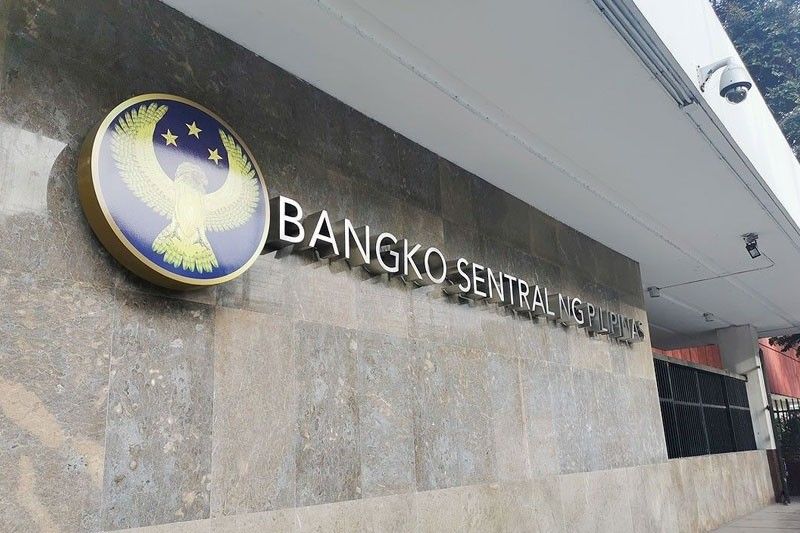BSP to keep rates on hold

MANILA, Philippines — The Bangko Sentral ng Pilipinas (BSP) is expected to keep interest rates on hold because of slowing domestic growth momentum and the inflation downtrend, according to economists.
Aris Dacanay, economist for ASEAN at HSBC, said the BSP is likely to keep its policy rates steady at 6.25 percent during its rate-setting meeting on Aug. 17.
Dacanay said concerns to bring the policy rate down have emerged due to the slower-than-expected 4.3 percent economic growth in the second quarter. The economy grew by 6.4 percent in the first quarter.
Inflation, while still above target at 4.7 percent in July, has also been on a consistent path back to the BSP’s two to four percent target band from a peak of 8.7 percent in January.
“Despite the challenges in growth, we continue to expect the BSP to maintain the policy rate at 6.25 percent and only cut rates after the US Fed cuts its own. Since our baseline view is for the Fed to cut in the second quarter of 2024, we expect the BSP to begin its easing cycle in the third quarter of 2024,” Dacanay said.
According to Dacanay, the inflation outlook carries a lot of upside risks that could put rate hikes back on the BSP’s table as rice export prices have risen by 20 percent since mid-July, while the pressure on the peso is on the rise given the narrowing interest rate differential between the BSP and the Fed rates.
ING Bank senior economist Nicholas Mapa said BSP Governor Eli Remolona Jr. is stuck between slowing growth and rising inflation risk in his first rate-setting meeting as chairman of the central bank’s Monetary Board.
“We believe Governor Remolona will need to consider a pause to provide growth with some support while remaining hawkish in his statement by vowing to hike if upside risks to the inflation outlook materialize,” Mapa said.
According to ING Bank, the Philippines imports energy and grain, and the prices of both have been on the rise recently, potentially threatening the current downward path of inflation.
“Persistent upside risks will likely translate to the central bank remaining hawkish even if the BSP opts to extend its current pause. We expect the BSP to keep rates untouched, but signal a strong willingness to tighten further should upside risks to the inflation outlook materialize,” Mapa said.
China Bank chief economist Domini Velasquez said the BSP would likely pause in its meeting on Thursday as the effect of the cumulative tightening since last year has taken a toll on the economy, which grew much slower than expected in the second quarter.
“We do recognize heightened upside risks to inflation. In fact, this August, we project inflation to be higher than July’s and will likely hit five percent. However, most of the pressures are coming from supply shocks, such as vegetable prices due to recent typhoons. Higher rice and oil prices globally are also key risks,” Velasquez said.
Despite the uptick, she said inflation is still expected to go down to within the BSP’s target in the fourth quarter.
“It might be more prudent for the BSP to stand pat on rates for now, but also to telegraph that they could act swiftly if the peso depreciates too much and again become inflationary (similar to what happened last year),” Velasquez said.
Citi Economist for the Philippines Nalin Chutchotitham said the significantly softer GDP print would likely convince the BSP to maintain its policy rate this week despite ongoing upside risks from food inflation.
Meanwhile, Rizal Commercial Banking Corp. chief economist Michael Ricafort said the central bank may resume its tightening cycle by raising interest rates.
“For the next local policy rate-setting meeting on Aug. 17, a 25-basis point rate hike is possible to match the latest 25-basis-point Fed rate hike on July 26 to maintain healthy interest rate differentials with the US (currently unusually low at 75 basis points) to help stabilize the peso exchange rate and overall inflation,” Ricafort said.
However, Ricafort said a pause in local policy rates could not be completely ruled out in view of the softer Philippine GDP growth data for the second quarter.
“Inflation would likely remain to be a bigger concern, just like the Fed’s stance in ensuring the sustainability of inflation within the central bank targets, going forward,” Ricafort said.
- Latest
- Trending






























